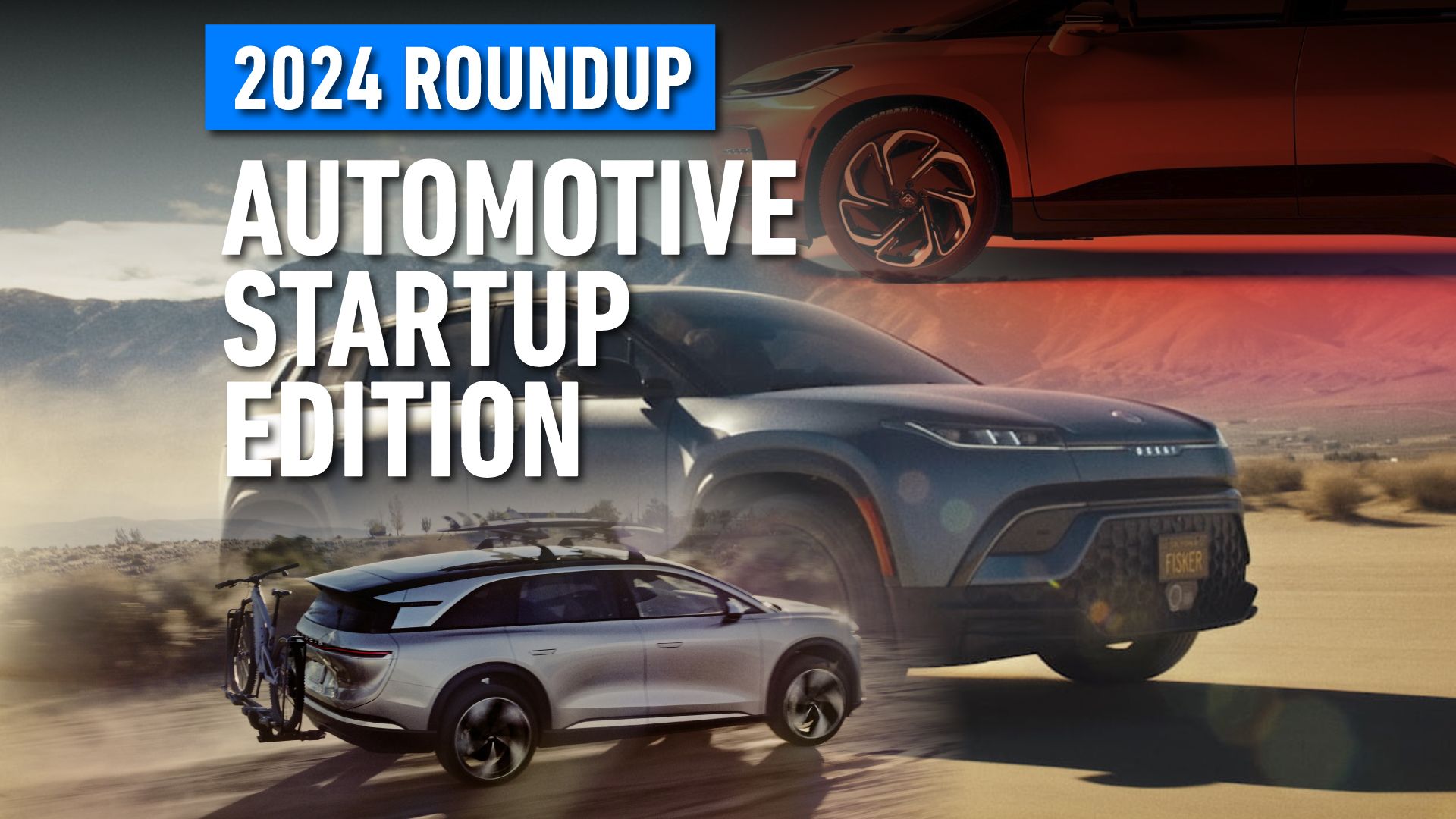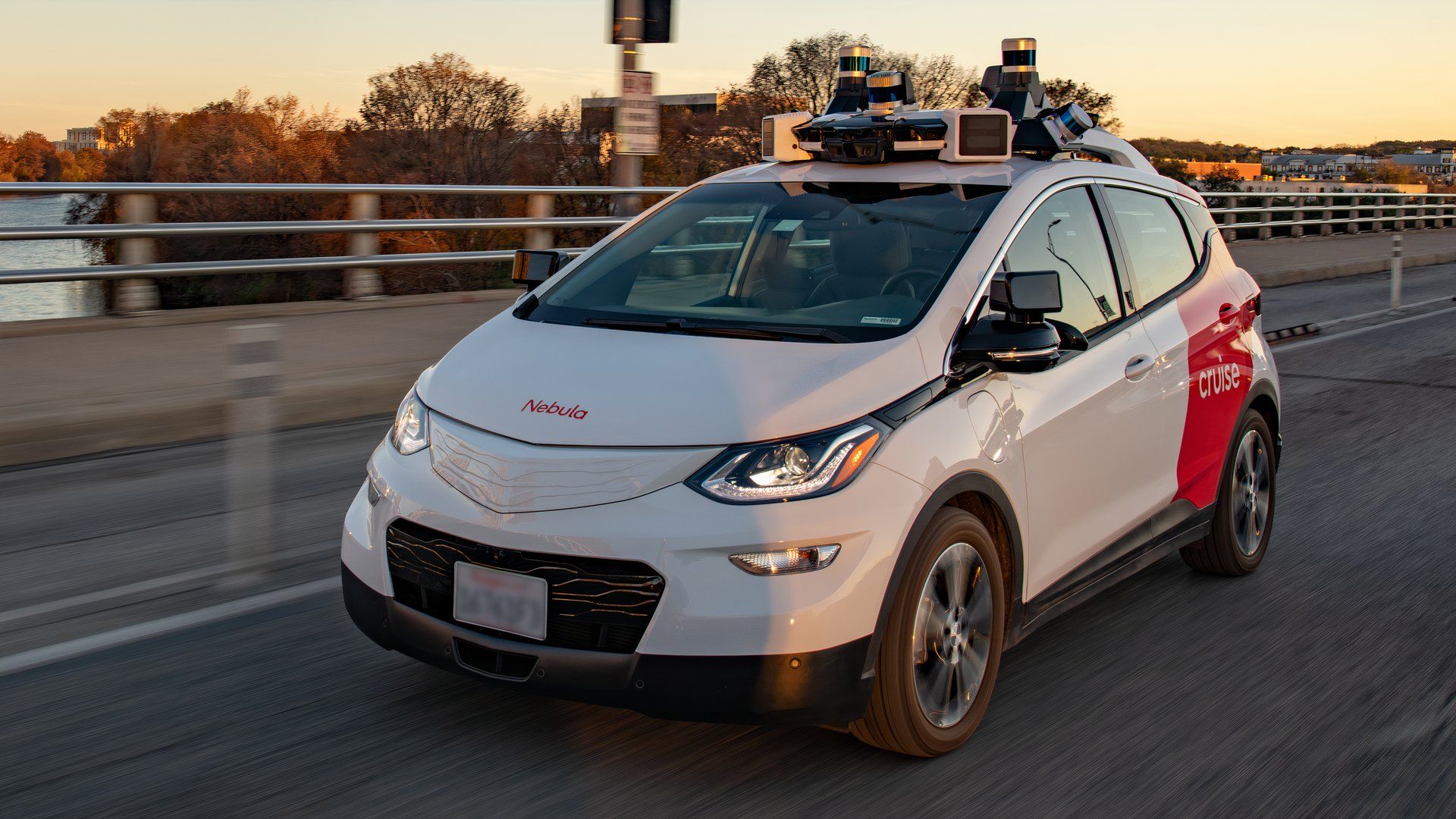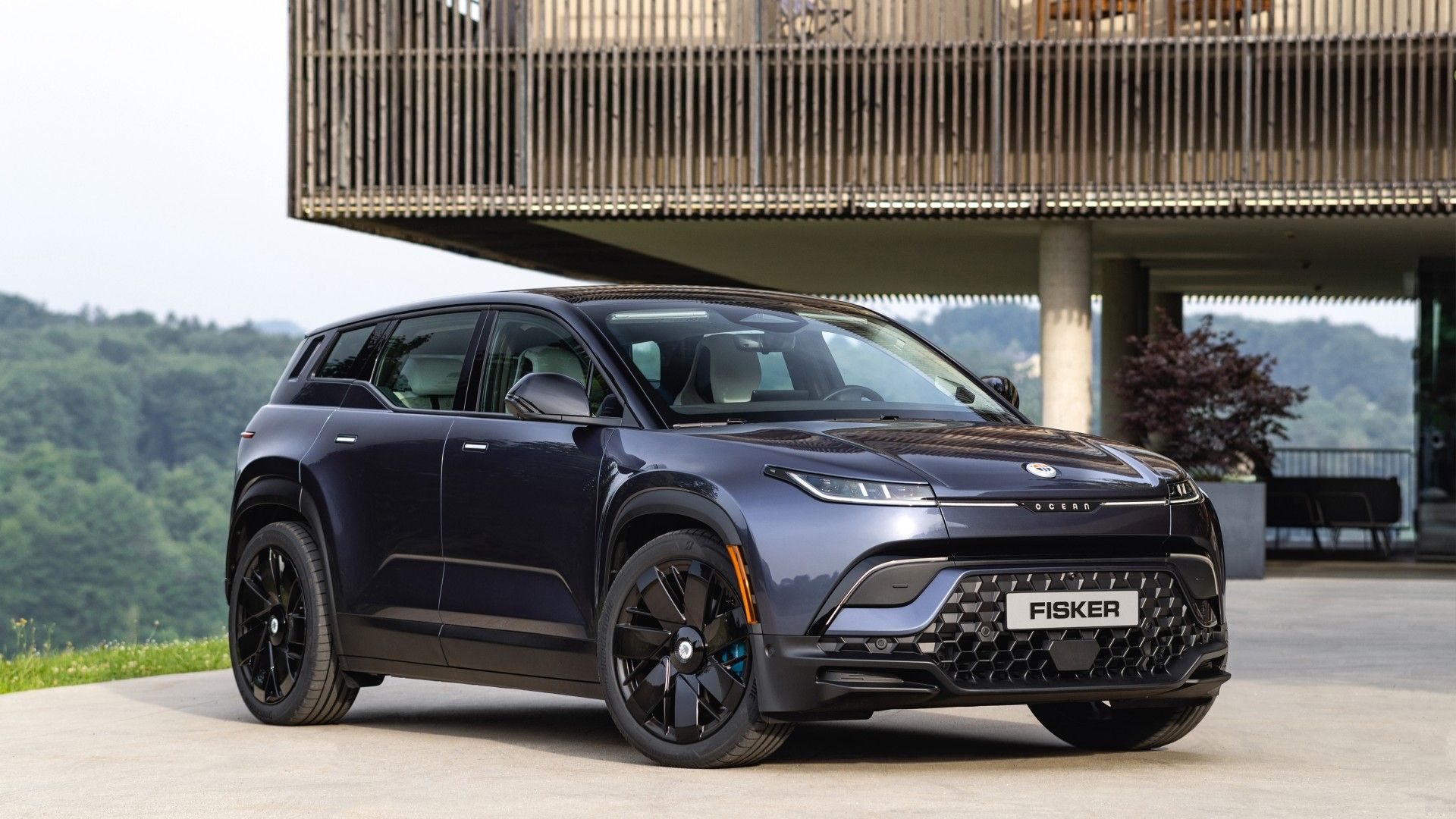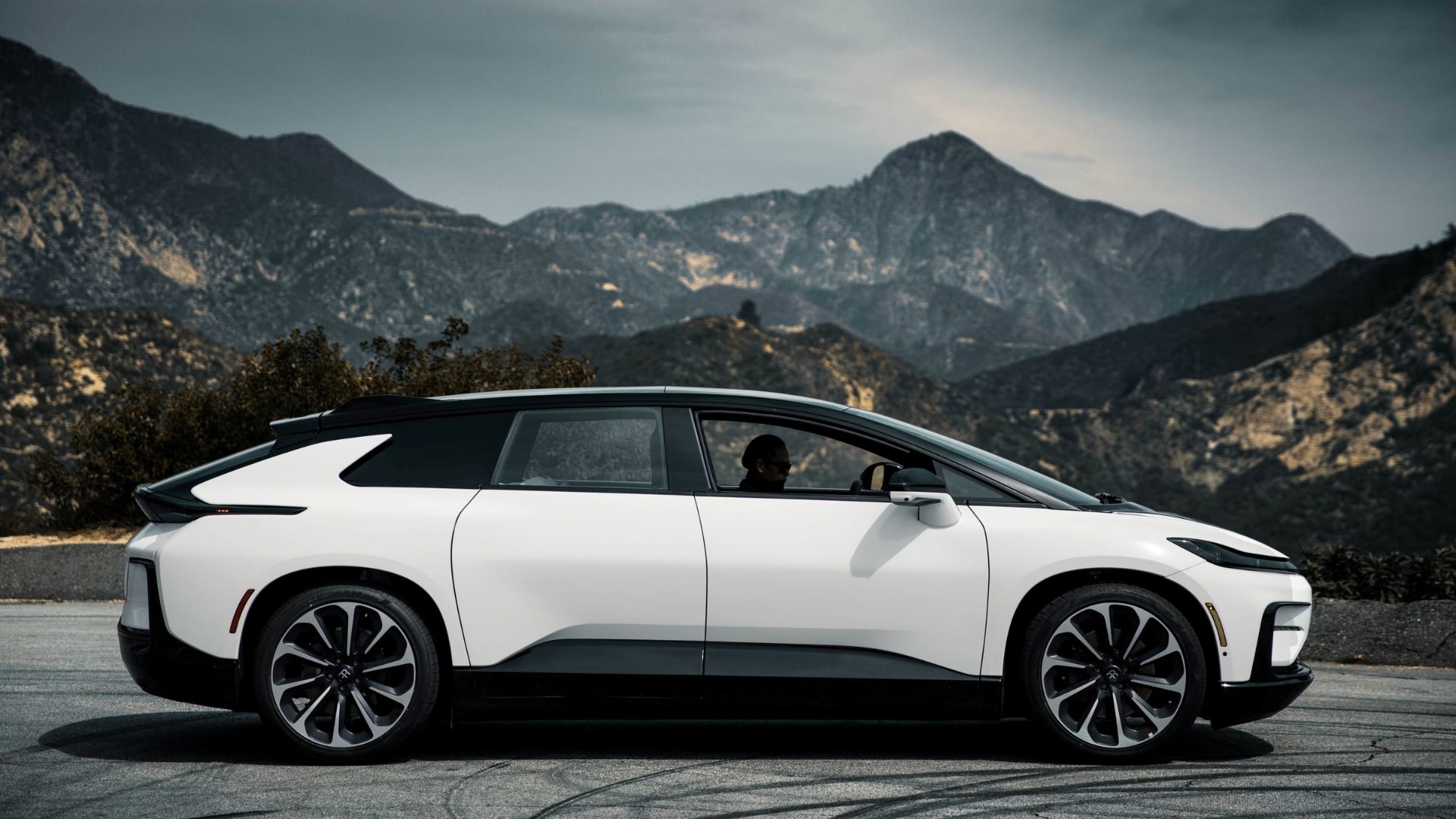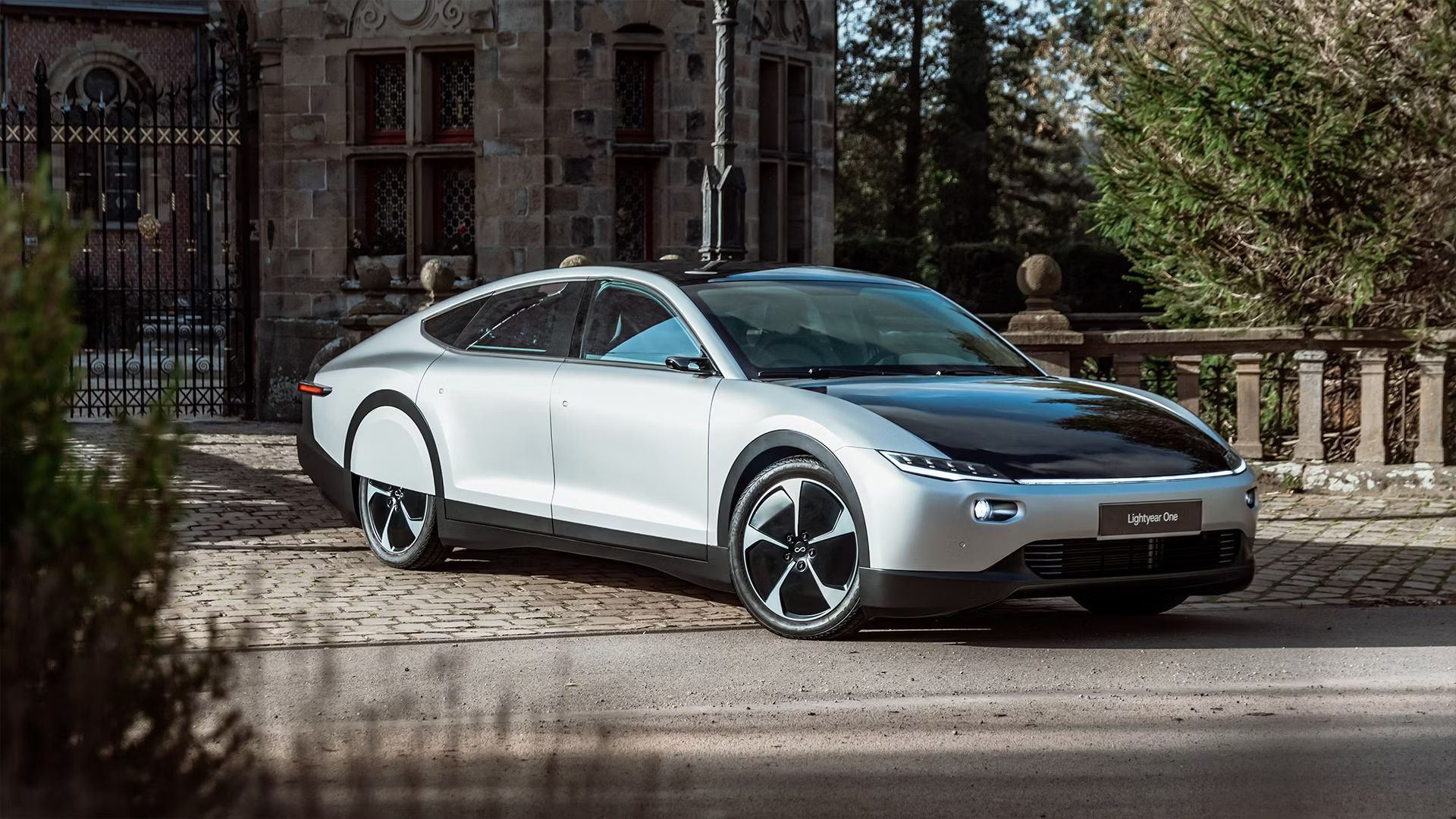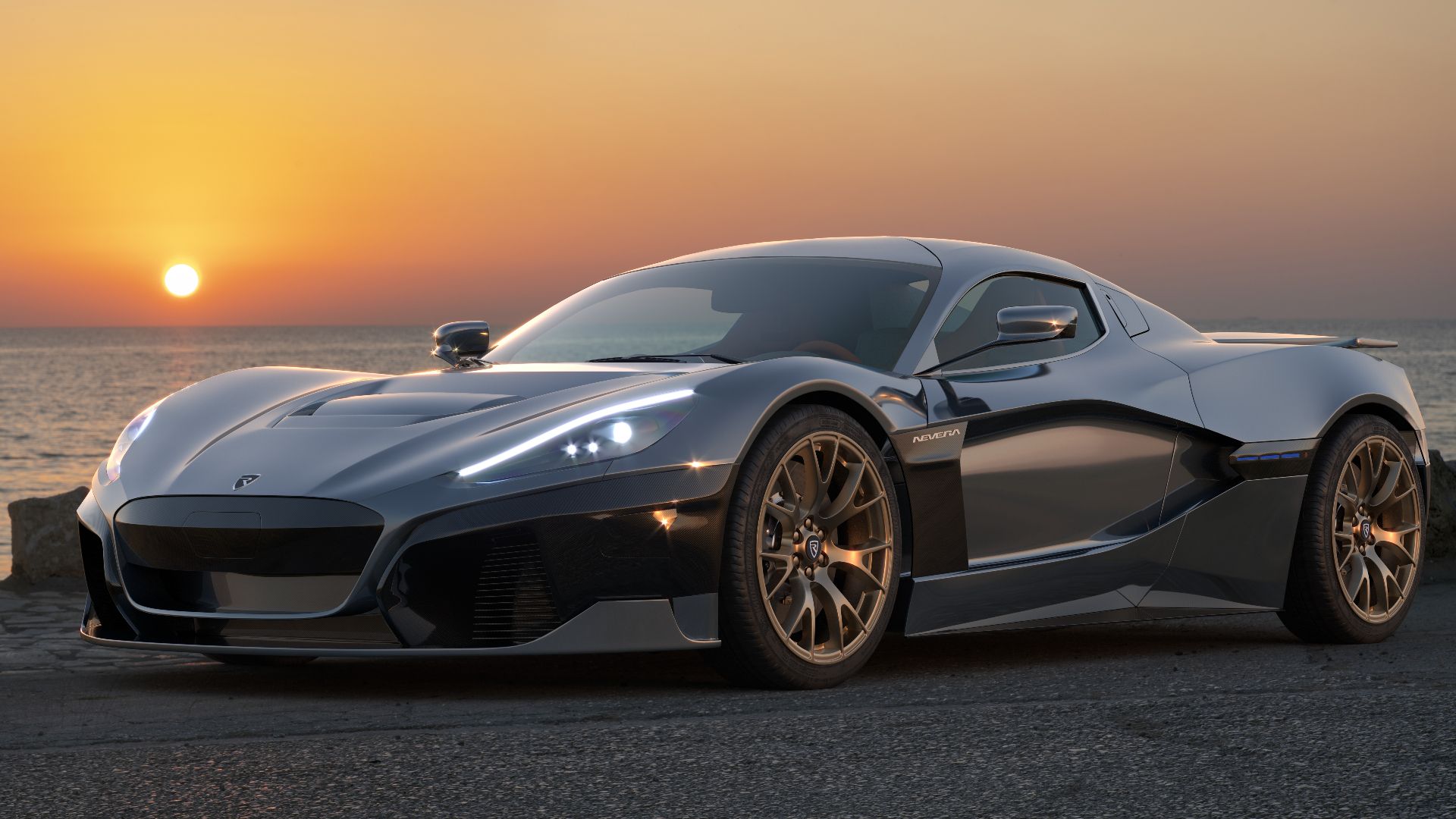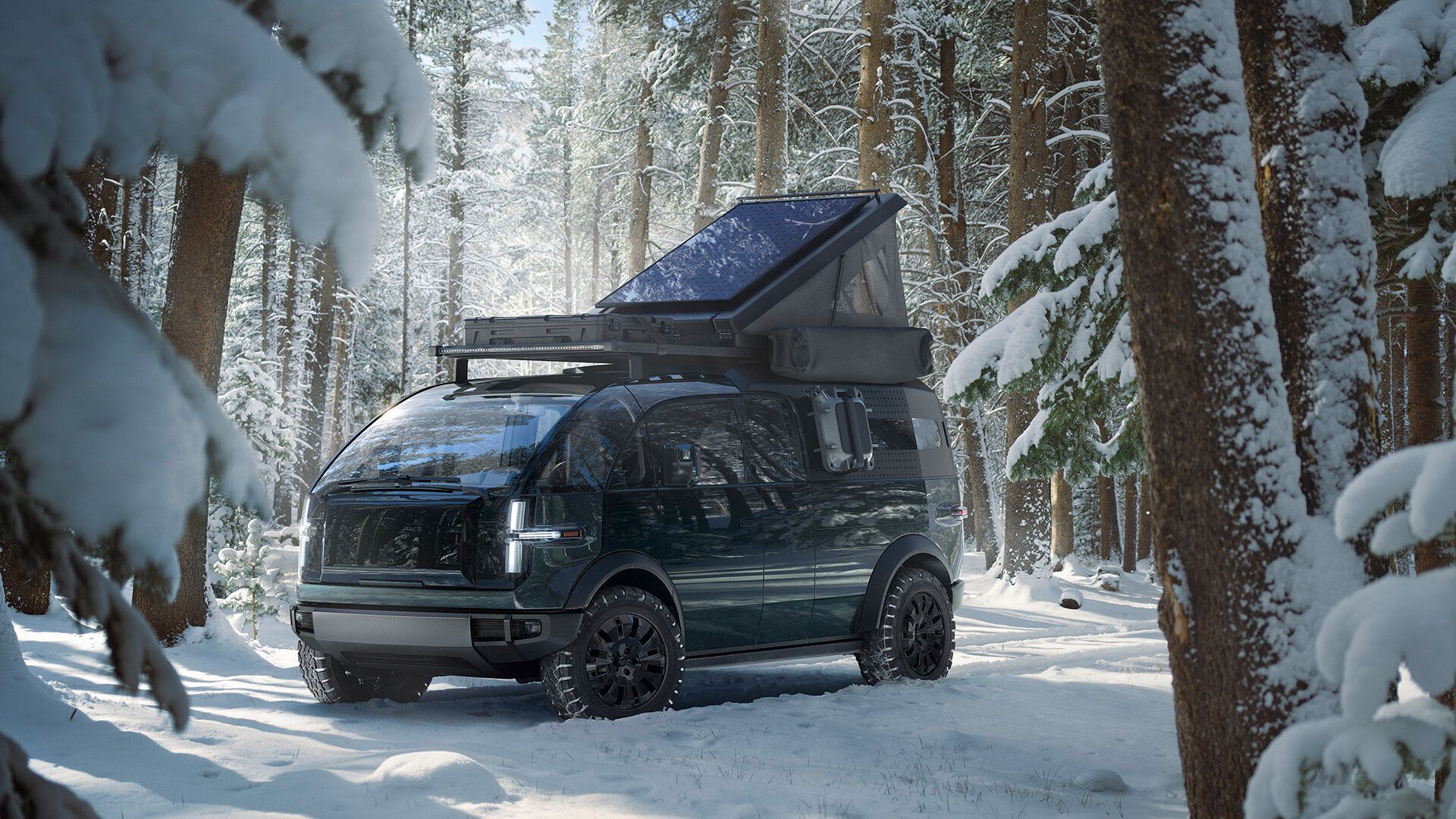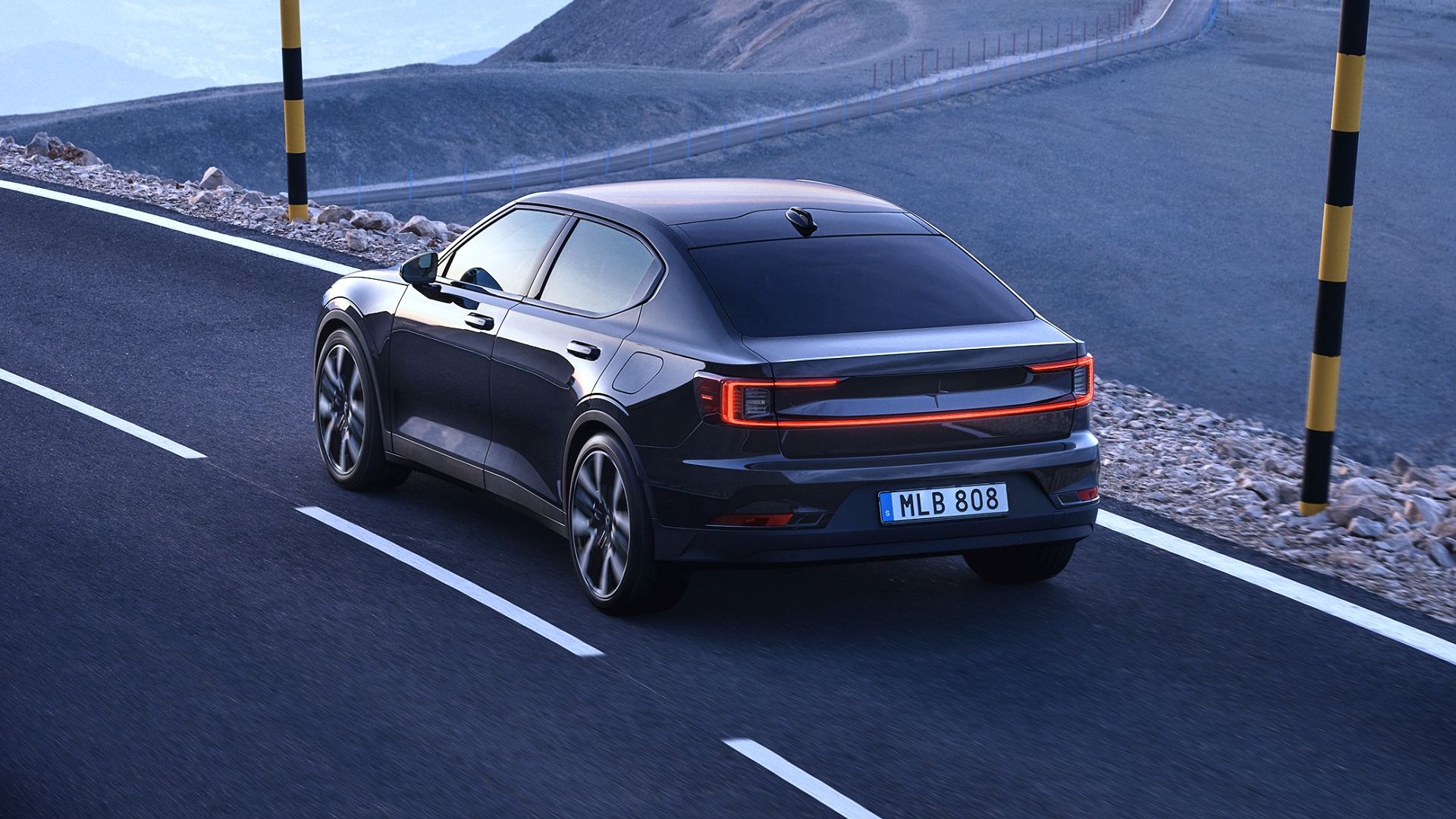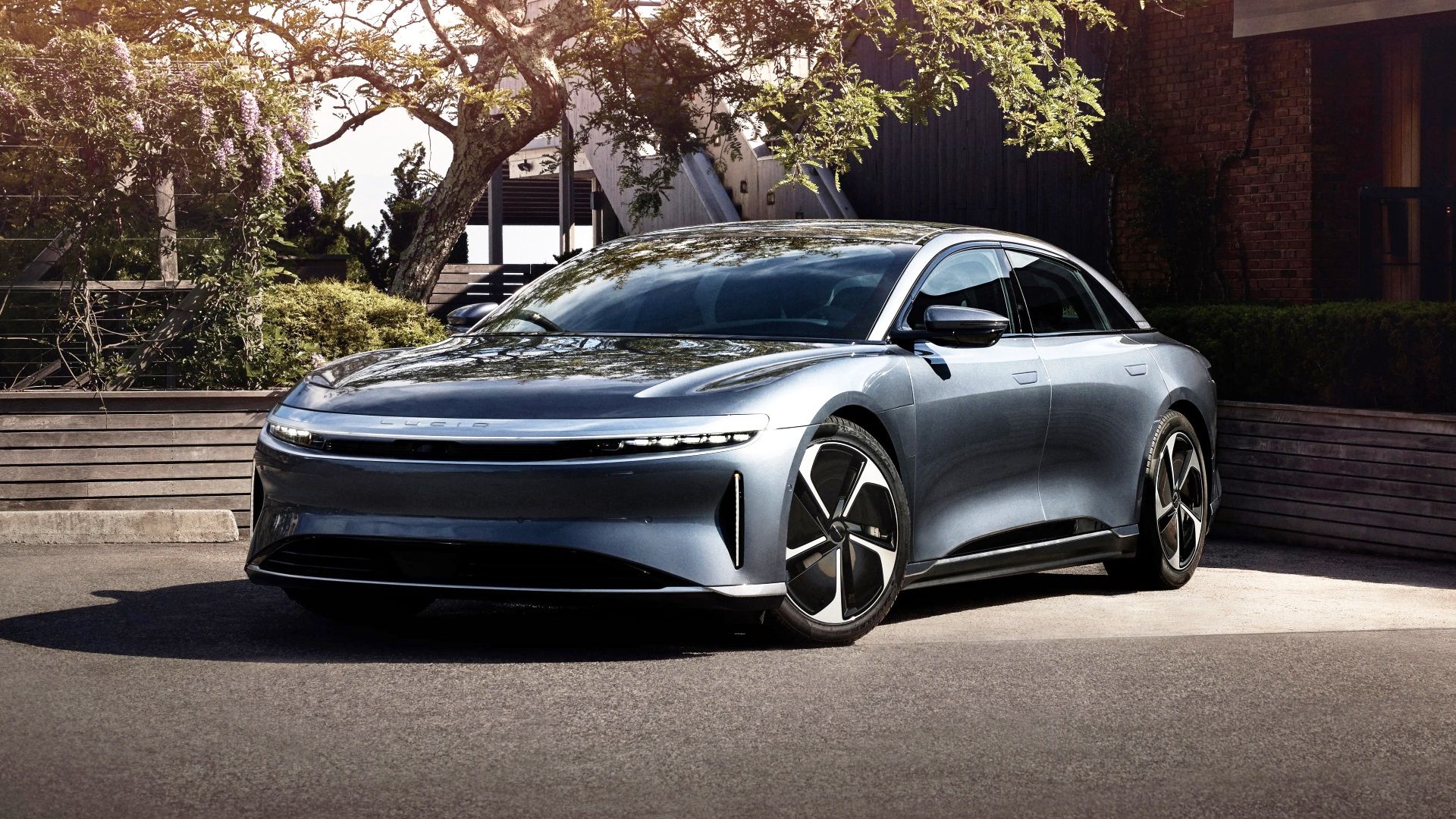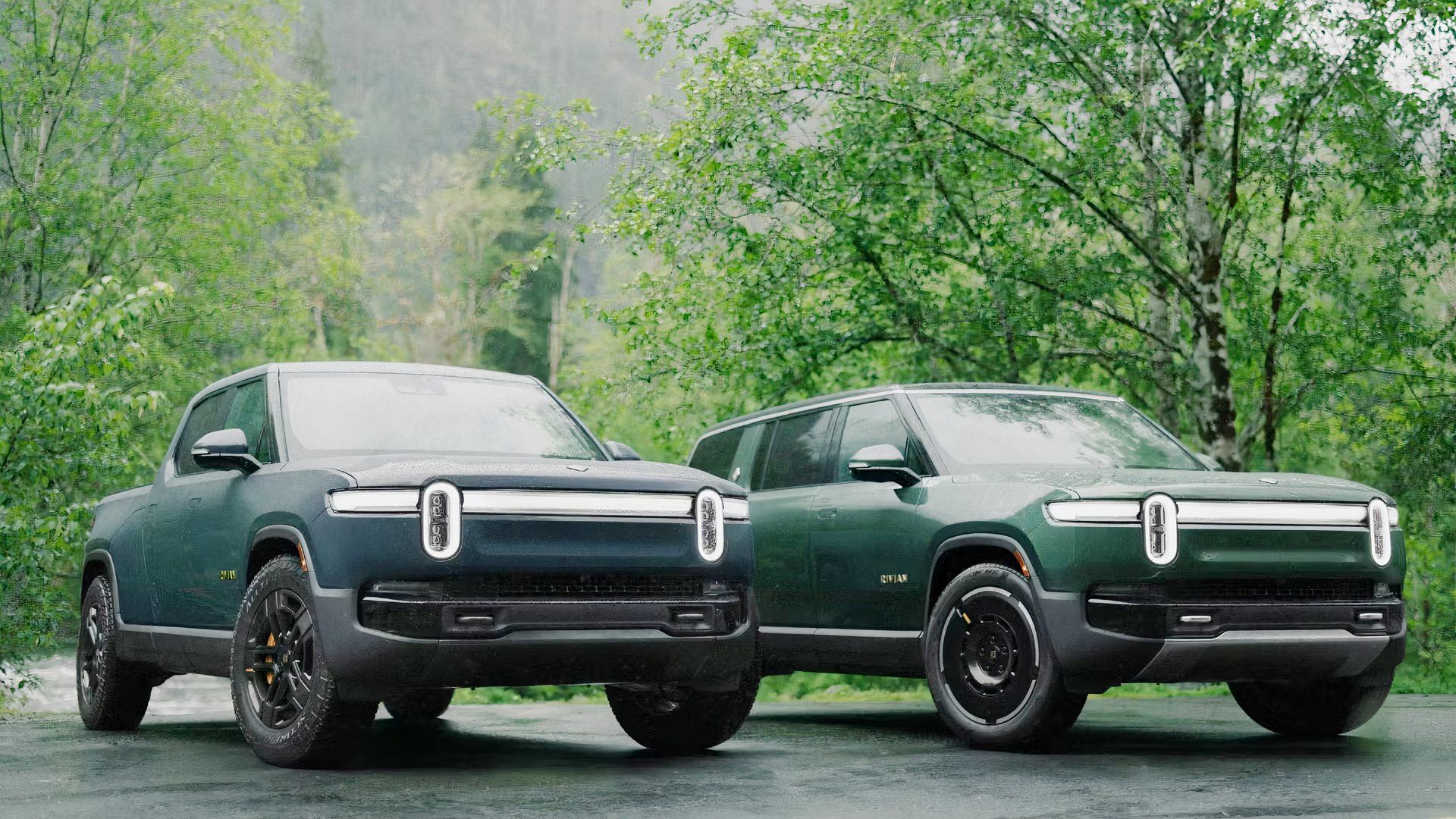The automotive startup scene in 2024 showcased a mix of breakthroughs and setbacks, putting on display exactly why startups are full of both innovation and unpredictability. Automotive startups have continued to lead the charge in reshaping transportation, with bold ideas ranging from electric vehicles (EVs) to self-driving, fully autonomous technology. Tesla, the grandfather of the EV movement, maintained its stronghold in the EV space in 2024, while other companies, like Fisker, experienced the harsher realities of the industry, with the latter declaring bankruptcy this year after struggling to keep the lights on.
Somewhere between the two extremes noted above, Lucid Motors pushed the envelope with luxury EV offerings, Rimac expanded its influence in the hypercar segment, and Canoo worked to overcome production challenges that could define its survival. Each of these companies, along with many more, has a story to tell about their own triumphs and tribulations of 2024. And we’re here to help tell them. Let’s dive in and explore ten of the most noteworthy startups in the automotive world, and take a look at where they started, where they are now, and how they fared in 2024.
In order to give you the most up-to-date and accurate information possible, the data used to compile this article was sourced from various manufacturer websites and other authoritative sources.
2:06
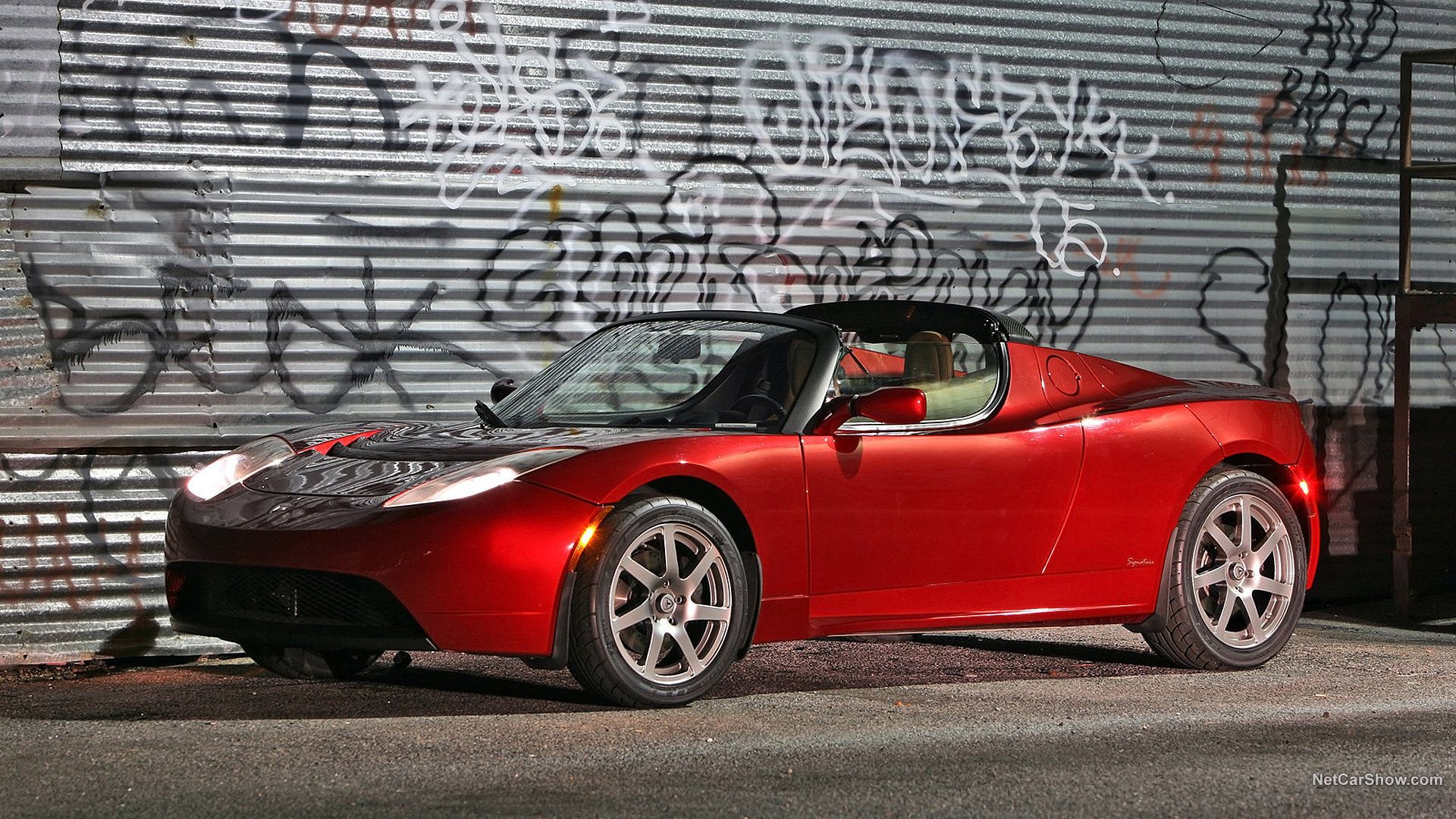
Related
This Is How Tesla Evolved From A Humble Startup To A Mainstream Brand
Tesla’s 21 years of business is a story of victory, struggles, and world-class innovation.
1
Cruise
Cruise LLC, founded in 2013, was once seen as a leader in autonomous vehicle technology with its ambitious vision of revolutionizing urban transportation through driverless taxis. Acquired by General Motors (GM) in 2016, the company became central to GM’s self-driving strategy, developing autonomous Chevrolet Bolts for commercial use. Over the years, Cruise expanded rapidly, offering driverless rides in major cities like San Francisco and Phoenix, and gaining attention as a pioneer in the robotaxi industry.
However, 2024 marked the end of Cruise’s once-promising journey. Following safety concerns and operational failures in late 2023, Cruise’s robotaxi services were suspended, and CEO Kyle Vogt resigned. The year began with attempts to revive operations under new leadership, but by December, GM officially ceased funding for the program, opting instead to redirect Cruise’s technology toward advanced driver-assistance systems for personal vehicles. Despite its early successes, Cruise became a cautionary tale of the challenges inherent in autonomous vehicle development.
2
Fisker
Fisker, a brand best known for combining luxury with sustainability, closed out 2024 in turmoil. Founded by Henrik Fisker in 2007, the company initially gained acclaim for the Fisker Karma, a plug-in hybrid electric vehicle that paired top-notch technology with stylish design. After financial struggles and a bankruptcy in 2013, the company rebranded as Fisker Inc. in 2016, shifting its focus to EVs. The Fisker Ocean SUV was meant to be the brand’s triumphant comeback, promising a competitive and eco-friendly offering in the crowded EV market.
Unfortunately, 2024 brought more hardship for Fisker, culminating in its second bankruptcy. Despite efforts to ramp up production of the Ocean, the company faced significant delays and financial setbacks, leaving it unable to compete against established automakers and newer startups. While Henrik Fisker’s vision of a sustainable future for luxury vehicles captivated many, the company’s struggles in 2024 showcased the immense challenges of surviving in the modern automotive landscape. By year’s end, Fisker’s future appeared uncertain, with its ambitious goals overshadowed by its inability to deliver.
3
Faraday Future
Faraday Future has long been a symbol of high ambitions in the electric vehicle industry, with its promises of offering both technology and luxury. Founded in 2014 and headquartered in California, the company initially captured attention with its vision of creating the ultimate intelligent electric vehicle. Its flagship model, the FF 91, was positioned as a high-tech, ultra-luxurious EV aimed at redefining personal mobility. However, Faraday Future’s journey has been anything but smooth, marked by financial instability, leadership changes, and repeated delays in bringing its vehicles to market.
In 2024, Faraday Future finally began limited deliveries of the FF 91, a milestone that had been years in the making. Marketed as a much smarter vehicle than other models on the road, the FF 91 boasted impressive features, including a spacious interior, advanced connectivity, and a range exceeding 300 miles. Despite this long-awaited achievement, the company’s year was overshadowed by questions about its sustainability. Production volumes remained low, and Faraday Future struggled to secure the capital needed to scale operations.
All of that said, the company just recently stated that it has secured $30 million in funding for its new brand, Faraday X. The brand is also promising to bring two prototypes of its two new vehicles, the FX5 and FX 6 to CES 2025 early this month. So while 2024 might have been a little up in the air in terms of success or failure, 2025 might be off to a great start for Faraday by the time you’re reading this.
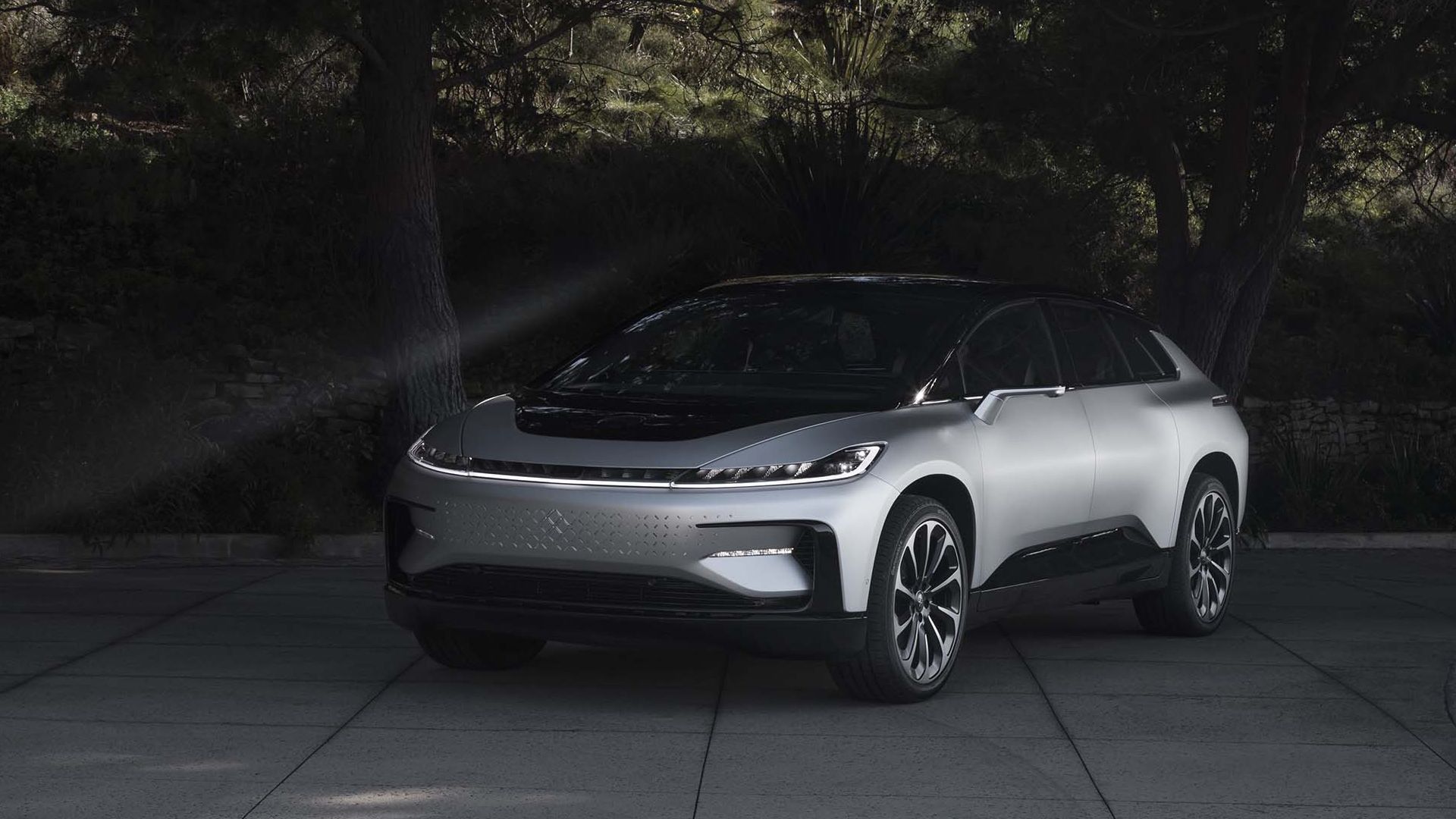
Related
Faraday Future History And Key People In The Company
Faraday Future struggles with a short but chaotic history, resulting in extensive layoffs, frequent leadership changes, and constant production delays
4
Lightyear
Lightyear, a Dutch automotive startup founded in 2016, has consistently sought to redefine the electric vehicle market with its emphasis on solar-powered mobility. The company’s vision centers around creating vehicles that minimize reliance on traditional charging infrastructure by harnessing the power of the sun. Its first production car, the Lightyear 0, debuted in 2022 as the world’s first solar-electric vehicle, offering a sleek design and cutting-edge technology. The vehicle’s integrated solar panels allowed for additional range in sunny conditions, a concept that captured global attention as a step toward more sustainable transportation.
In 2024, Lightyear focused its efforts on advancing the development of its next model, the Lightyear 2, which aims to be a more affordable and mass-market-friendly solar-electric vehicle. While the Lightyear 0 was priced well out of reach for most consumers at $264,000, the company’s pivot to the Lightyear 2 signals a shift toward broader market adaptability. Production challenges and financial hurdles remained significant, but Lightyear secured additional funding and partnerships throughout the year to support its ambitions.
5
Rimac
Rimac Automobili, founded in Croatia in 2009 by Mate Rimac, has built a reputation as a trailblazer in electric hypercar technology. Known for its innovative engineering and record-breaking vehicles, the company has become a leader in pushing the limits of what EVs can achieve. In 2024, Rimac cemented its position as a global powerhouse with the continued success of the Nevera, its all-electric hypercar that holds the title of the world’s fastest EV. With a staggering top speed of 258 miles per hour (MPH) and the ability to reach 60 MPH in just 1.74 seconds, the Nevera has redefined performance in the EV space.
Beyond the Nevera, Rimac has also made significant strides as a technology supplier, providing advanced electric drivetrains and battery systems to major automotive manufacturers, including Porsche and Bugatti. In 2024, the company announced expanded partnerships and investments, solidifying its role as a key player in the high-performance EV market. Rimac Technology, the company’s engineering division, contributed to the development of next-generation battery platforms like the new Aston Martin Valkyrie.

Add TopSpeed to your Google News feed.
6
Canoo
Canoo, a California-based EV startup founded in 2017 by two past employees of the aforementioned Faraday Future, has garnered attention for its unique approach to EV design and flexible vehicle platforms. Known for its futuristic, minimalist aesthetics and a mission to make EVs accessible, Canoo’s lineup includes versatile vehicles like the Canoo Lifestyle Vehicle and the Canoo Pickup Truck. These models emphasize modular design, spacious interiors, and advanced connectivity, targeting both consumers and fleet operators, with plans for a fleet of commercial EVs coming down the pipeline. However, the company’s journey has been marked by financial struggles and production delays, leaving its future uncertain.
Over the last couple of years, Canoo has focused on fulfilling key contracts and scaling production after years of challenges. One of its high-profile clients was NASA, which selected Canoo to transport astronauts to the Artemis launchpad. Another was Walmart, which ordered 4,500 Lifestyle Delivery Vehicles with an option to buy up to 10,000 of them.
Despite these massive orders among a few others, the company has failed to deliver. As of now, less than 12 total units have been delivered, with none of them appearing to be production models. In addition to this, the company’s co-founder, Sohel Merchant left Canoo and said the company was moving out of Los Angeles back in August. To end the year on a low, in December 2024, Canoo announced it was furloughing 82 employees as it sought to raise emergency funding. While it looked like the company was set to skyrocket just few short years ago, it now seems it may be headed towards the same fate as Fisker.
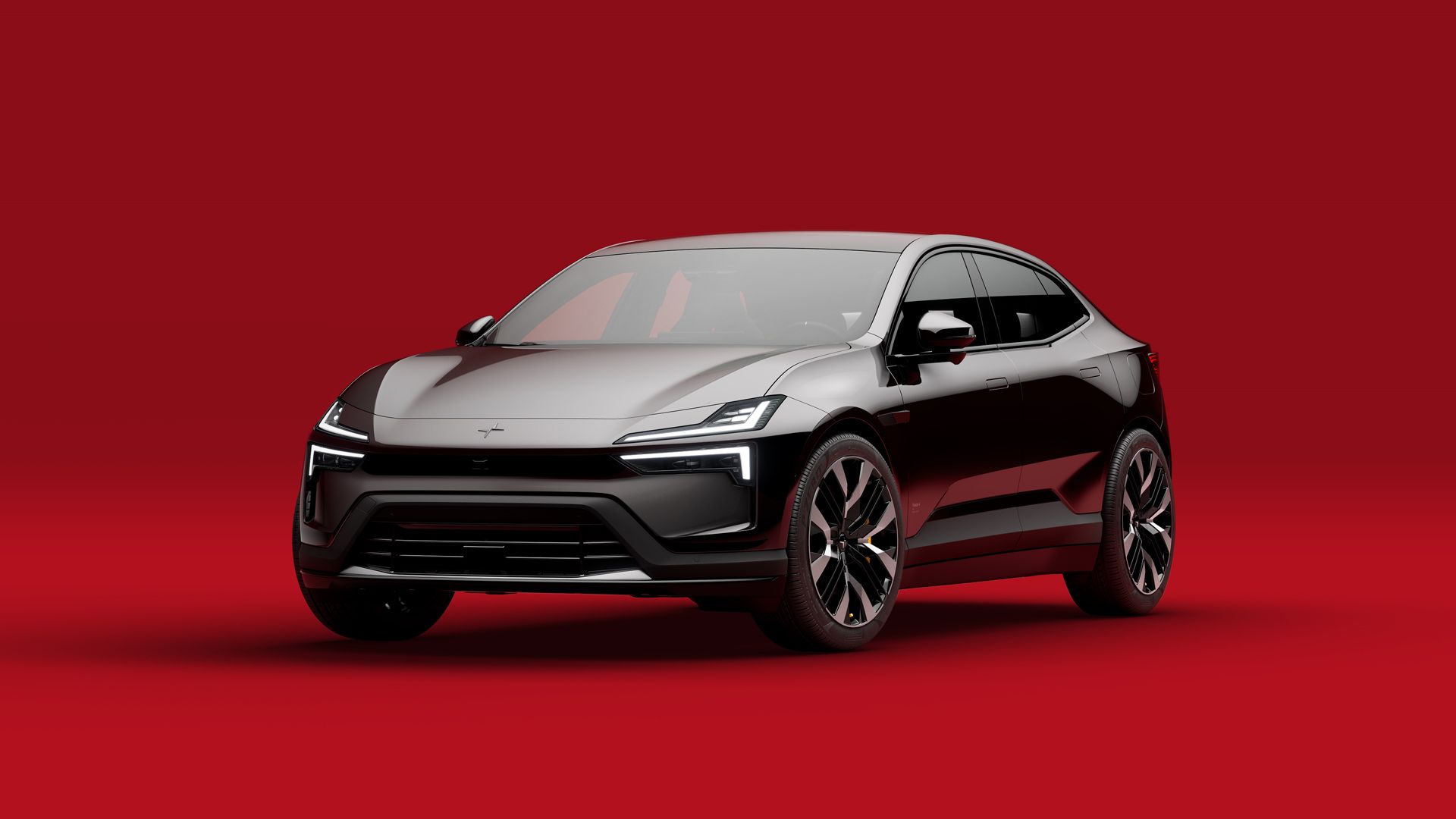
Related
Polestar: Company History, Ownership, And Future Outlook
Learn how Polestar’s alliances with tech giants redefine electric driving and luxury.
7
Polestar
Polestar, the Swedish electric performance car brand born from Volvo and Geely, continued its steady rise in 2024, strengthening its reputation as a serious competitor in the EV market. Originally established in 1996 as a racing team, Polestar evolved into a high-performance vehicle manufacturer before transitioning into an all-electric brand.
In 2024, Polestar focused on expanding its market reach and refining its lineup. The Polestar 3, a luxury electric SUV, entered production and started limited deliveries, targeting premium buyers with its advanced driver-assistance systems and impressive range. The brand also released the Polestar 4, which just recently started arriving in the U.S. in the last few months. During the year, the brand also announced updates to the Polestar 2, including a longer range and improved performance, further cementing its appeal in the competitive midsize EV segment.
As 2024 drew to a close, Polestar emerged as one of the more stable and promising startups in the EV industry. Its ability to deliver stylish, high-performance EVs while maintaining a focus on sustainability has solidified its place as a key player in the EV space. With plans for the upcoming Polestar 5, 6, and 7 in the pipeline, the company is poised for continued growth in the years ahead.
8
Lucid Motors
Lucid Motors, a California-based luxury electric vehicle manufacturer, continued to make its mark in the premium EV market in 2024. Founded in 2007, Lucid originally focused on battery technology before transitioning to building high-performance EVs of its own. The Lucid Air, the brand’s flagship sedan, has been praised for its combination of technology, luxurious design, and exceptional performance. Among its impressive variants is the Lucid Air Grand Touring, which boasts an industry-leading range of over 500 miles on a single charge.
In 2024, Lucid expanded its presence globally while refining its lineup to meet growing consumer demand. The company introduced updates to the Air to enhance its performance and features, and it continued development on its next vehicle, the Lucid Gravity SUV, which promises to bring the brand’s hallmark luxury and performance to a larger, more versatile platform. Despite these advancements, Lucid faced challenges, including increased competition in the luxury EV market and the ongoing struggle to scale production efficiently.
By the end of 2024, Lucid remained a symbol of innovation in the EV industry. Its ability to combine groundbreaking technology with luxury has kept it at the forefront of the electric revolution. As it looks ahead to the Gravity’s launch in 2025, Lucid Motors continues to shape the future of premium EVs with a focus on range, performance, and sustainability.
9
Rivian
Rivian, the adventure-focused electric vehicle startup founded in 2009, has continued to make waves in the EV market with its rugged and versatile offerings. Best known for its R1T electric pickup and R1S electric SUV, Rivian has carved out a niche for itself by combining innovative technology with off-road capability and high-end performance.
In 2024, Rivian made significant progress in ramping up production to meet increasing demand. The R1T and R1S received minor updates aimed at improving range and technology to keep up with other models in their respective classes. Additionally, Rivian expanded its charging infrastructure with its proprietary Adventure Network, targeting remote areas to better serve its adventurous customer base. Despite these advancements, the company faced challenges in achieving profitability, grappling with high production costs and intensifying competition in the EV market.

Related
The Evolution Of Tesla From A Humble Startup To Becoming A Mainstream Brand
Tesla’s 21 years of business is a story of victory, struggles, and world-class innovation.
10
Tesla
Tesla cemented its dominance in the EV market in 2024, continuing to set benchmarks for production, sales, and innovation. As the world’s leading EV manufacturer, Tesla outproduced automotive giants like Kia, showcasing its unmatched scale and efficiency in EV production. The Model Y, the brand’s midsize SUV, retained its title as the best-selling EV globally, as it paces to become the best-selling vehicle overall in the U.S.
The year also marked the highly anticipated launch of the Tesla Cybertruck. After years of buildup, the futuristic electric pickup finally hit the streets and quickly became the best-selling electric truck in early 2024. Its polarizing design and impressive specs, including robust towing capabilities and performance, helped it capture attention and redefine expectations for EV pickups. Meanwhile, Tesla expanded production at its Gigafactories worldwide, enabling the company to keep pace with unprecedented demand and maintain its competitive edge.
As 2024 came to a close, Tesla remained at the forefront of the industry, shaping the future of electric vehicles and sustainable transportation. With its robust lineup, record-breaking sales, and groundbreaking new releases, Tesla’s dominance shows no signs of slowing down, even though other brands might slowly be closing the gap.
